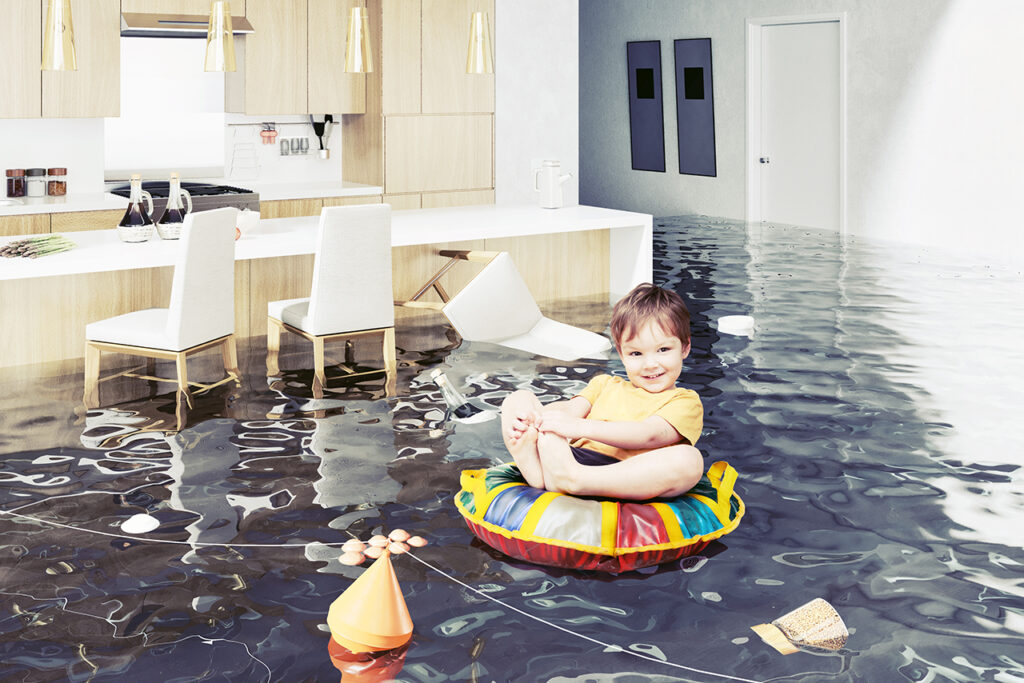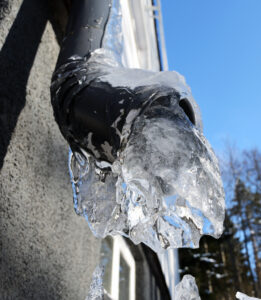Preventative maintenance can go a long way. Taking the time to check on a few common household systems can help save you time and money. Flooding and water damage leads to expensive repairs and possible health concerns for you and your family. Icey conditions can create dangers around the home. And common household appliances can be at risk without regular checks. A little time now can prevent costly damage down the road.
Regular Sump Pump Maintenance
Your sump pump’s job is to pump water outside and away from your home. A functioning sump pump can prevent flooding and protect your home. Even if your area is typically dry, unexpected storms or thawing pose a risk. Check your sump pump at least once a year to ensure it is still in good working condition.
Look for any signs that the pump may be impeded. Is the power cord in good condition? Is there any debris that could block it? Has the drain hose been attached properly? It is a good idea to take the time and test it as well by pouring water in to ensure that it turns on and drains automatically.
One last thing to keep in mind, sump pumps run on electricity. They won’t function in a power outage so consider investing in a battery back up. This is added protection against failure and some insurance providers even offer discounts for employing one. If you do have one, don’t forget to test it when you check on your sump pump.
Ensuring sump pumps are in working order for when there is a mid-winter or spring thaw will help protect your home.
Clean Your Lint Trap
Dryers are the cause of more than 20,000 house fires every year. Resulting in millions of dollars in damage and injury. A dryer fire may start because of heat build-up and friction or because of an electrical problem. They can spread quickly as they use your dryer’s vents to spread into your home’s walls.
Cleaning your dryer’s lint trap is a simple but important step to take to help prevent a fire. You should clean your lint trap screen every time you use your dryer and you should clean your dryer vents at least once a year.
Check Your Downspouts
Your downspouts help direct water away from your foundation. Preventing it from building up and eventually finding its way into your basement. Just like you check your eavestroughs in fall for leaves and debris you should check your downspouts for ice in the winter.
Ice build-up clogs your downspouts will keep water from flowing away from your home. Check your spouts to make sure they are not blocked by ice and clear away any build-up of snow around the downspout. This way when the snow on your roof thaws the water will be able to flow out and away from your foundation.
Salt Your Drive/Stairs/Pathways
Winter is here and that means increased risk of slips and falls outside. There were nearly 9,000 hospitalizations due to falls on ice in Canada in 2016-2017, making them the number-one cause of sport or winter injuries, according to the latest stats from the Canadian Institute for Health Information.
Salting your drive and the pathways around your home with rock salt before the snow falls is the best way to prevent ice from forming. That means it is the best way to help prevent slips and falls. But even if you forget, you should apply deicing products when you clear your pathways.
Always read the instructions on your deicer product before use. Although most deicers on the market are made from one, or a blend of, five main materials — calcium chloride, sodium chloride, potassium chloride, magnesium chloride, and urea, they can function differently based on their composition. Check whether you have an endothermic or exothermic product. The conditions and temperatures under which each product will work will vary. And if you have furry friends you may want to consider a product that is pet safe.
Check Your Hot Water Tank
For the most part, our hot water tanks sit in dark corners of our homes and often go unattended. You should check on your tank regularly, even if you haven’t had any issues with its performance. Usual noise, sediment build-up, rust, small leaks are all signs your hot water tank needs attention. And many you won’t notice until it is too late if you don’t check.
Most Hot Water Tanks are designed to last between 8 and 12 years. On heaters used past their expiration date, rusting is inevitable. But rust can occur in any water heater and can lead to leaks. If you are at work or away on vacation, even a small leak can lead to thousands of dollars in damage to your home. Not to mention the time and effort to repair the damage or the health risks of cleaning up after water damage.
Even under with regular maintenance seasonal flooding can pose a risk to your property. Consider installing water sensors to help protect your home against flooding. They detect water by measuring the electrical conductivity of the water present and completing a circuit to send a signal. Advanced models can even send you notifications or be programmed to shut off the water.
Water sensors should be installed anywhere a leak may originate such as washing machines, dishwashers, hot water heaters, bathrooms, furnaces connected to water systems, including hot air system humidifiers, and basements.
At ISL your safety is important to us. Contact us for more homeowner tips or to find out how we can help you save money on your home and auto insurance at 1-888-368-9298.


